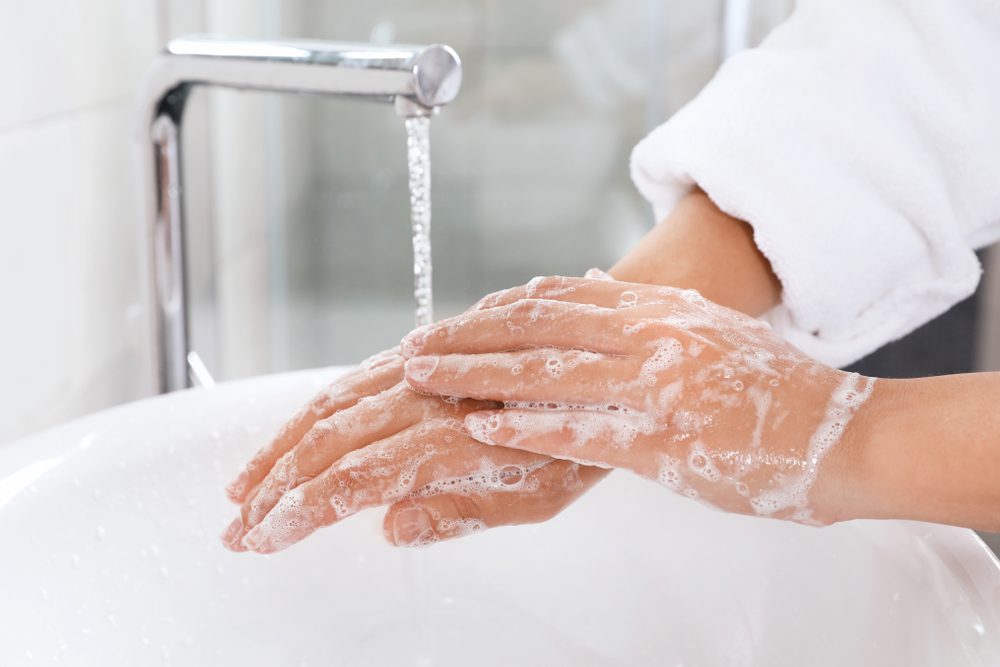Just how do you actually feel on the subject of 4 Ways to Troubleshoot Low Water Pressure?

Low tide stress in your house can be a discouraging trouble, impacting every little thing from bathing to washing recipes. If you're experiencing weak water circulation, there are a number of feasible causes and remedies to check out. In this overview, we'll review common reasons for low water stress and sensible actions to attend to the concern properly.
Introduction to Low Tide Stress
Low water stress takes place when the circulation of water from your faucets, showers, and various other fixtures is weaker than common. This can make day-to-day jobs more difficult and much less reliable. Comprehending the causes of low water pressure is essential to locating the appropriate solution.
Common Sources Of Low Tide Stress
Pipe Obstructions
Gradually, pipelines can come to be clogged with mineral deposits, debris, or particles, limiting the flow of water. This is a common concern in older homes with galvanized steel pipelines.
Corrosion
Deterioration within pipelines can cause leaks and decreased water stress. Rust buildup can restrict water flow, particularly in maturing plumbing systems.
Faulty Pressure Regulatory Authorities
Stress regulators are responsible for keeping consistent water pressure in your home. If they malfunction, it can lead to low tide stress or uneven circulation throughout your home.
Community Supply Of Water Issues
Occasionally, the issue exists outside your home. Municipal water supply concerns, such as main line leaks or maintenance work, can briefly minimize water pressure in your area.
Exactly How to Diagnose Low Water Pressure
Inspecting Taps and Components
Start by evaluating the water stress at different taps and components throughout your home. If the concern is isolated to details locations, it might suggest localized issues.
Checking Pipes
Inspect noticeable pipelines for indications of leaks, rust, or clogs. Take note of any kind of unusual noises, such as banging or rattling pipes, which might suggest issues within the plumbing system.
Consulting with a Plumber
If you're incapable to pinpoint the cause of low water pressure, take into consideration hiring a specialist plumber to carry out a detailed inspection. They can identify underlying problems and suggest suitable remedies.
Do It Yourself Solutions to Deal With Low Water Stress
Cleaning Up Aerators and Showerheads
Natural resources can accumulate in aerators and showerheads, decreasing water circulation. Eliminate and cleanse these components regularly to enhance water stress.
Flushing Water Heater
Sediment buildup in the water heater can restrict flow and lower efficiency. Flushing the tank regularly assists get rid of sediment and preserve ideal performance.
Checking Stress Regulator
Make sure that the stress regulatory authority is operating correctly. Readjusting or replacing the regulatory authority can help recover correct water stress throughout your home.
Clearing Up Clogs in Pipes
For small blockages, attempt utilizing a plumbing serpent or chemical drain cleaner to clear obstructions in pipes. Be cautious when making use of chemicals and comply with safety guidelines.
When to Call a Specialist Plumber
If DIY initiatives stop working to deal with the problem or if you believe significant plumbing troubles, it's finest to seek assistance from a qualified plumber. They have the proficiency and devices to attend to complex issues securely and efficiently.
Preventive Measures to Maintain Water Pressure
Routine Upkeep
Set up regular maintenance for your plumbing system to avoid issues such as deterioration, leakages, and blockages. Resolving small issues early can aid stay clear of more significant repair work later.
Setting Up a Pressure Booster
Think about mounting a stress booster pump to enhance water pressure in locations with consistently reduced flow. This can be particularly beneficial for multi-story homes or buildings with high-demand fixtures.
Monitoring Water Usage
Be mindful of water use behaviors and stay clear of ill-using the plumbing system. Easy adjustments, such as staggering showers and washing tons, can assist keep appropriate water stress.
Final thought
Handling low water stress can be aggravating, but identifying the underlying reasons and executing suitable remedies can recover optimum circulation throughout your home. Whether it's cleaning up aerators, evaluating pipelines, or speaking with a plumber, taking aggressive steps can make certain a consistent supply of water for your daily needs.
FOUR WAYS TO FIX LOW WATER PRESSURE NOW
Turning on a shower or faucet only to find the water comes out in a sad, slow drizzle is never a good feeling. How exactly are you supposed to wash a pan or take a quick shower when it takes 10 minutes just to rinse off a little soap? The good news is that when your water pressure is bad, there's always a cause: typically one that can be easily fixed. Here are some of the most common causes of low pressure and what you can do to fix the issue:
DEBRIS AND MINERAL DEPOSIT BUILDUPS
If you notice low water pressure from just one or two of the fixtures in your house, the problem likely has to do with debris buildup. Water is full of minerals and other debris, all of which can accumulate in your pipes and on your fixtures. This can cause a blockage that affects how much water flows through. To fix this, try filling a small plastic bag with white vinegar, and use a rubber band to hang it around your showerhead or faucet. Let the head of the fixture soak for a few hours, and the vinegar should loosen the deposits.
WATER LEAKS
Leaks are another common cause of low water pressure. If water is flowing out of your plumbing through a hole or crack before it can reach your fixture, the pressure coming out of the faucet or showerhead will be lower. A plumbing professional is your best bet for finding and repairing a leak in your water supply pipes.
Leaks are another common cause of low water pressure. If water is flowing out of your plumbing through a hole or crack before it can reach your fixture, the pressure coming out of the faucet or showerhead will be lower. A plumbing professional is your best bet for finding and repairing a leak in your water supply pipes.
FOUR WAYS TO FIX LOW WATER PRESSURE NOW
Turning on a shower or faucet only to find the water comes out in a sad, slow drizzle is never a good feeling. How exactly are you supposed to wash a pan or take a quick shower when it takes 10 minutes just to rinse off a little soap? The good news is that when your water pressure is bad, there's always a cause: typically one that can be easily fixed. Here are some of the most common causes of low pressure and what you can do to fix the issue:
DEBRIS AND MINERAL DEPOSIT BUILDUPS
If you notice low water pressure from just one or two of the fixtures in your house, the problem likely has to do with debris buildup. Water is full of minerals and other debris, all of which can accumulate in your pipes and on your fixtures. This can cause a blockage that affects how much water flows through. To fix this, try filling a small plastic bag with white vinegar, and use a rubber band to hang it around your showerhead or faucet. Let the head of the fixture soak for a few hours, and the vinegar should loosen the deposits.
WATER LEAKS
Leaks are another common cause of low water pressure. If water is flowing out of your plumbing through a hole or crack before it can reach your fixture, the pressure coming out of the faucet or showerhead will be lower. A plumbing professional is your best bet for finding and repairing a leak in your water supply pipes.
Leaks are another common cause of low water pressure. If water is flowing out of your plumbing through a hole or crack before it can reach your fixture, the pressure coming out of the faucet or showerhead will be lower. A plumbing professional is your best bet for finding and repairing a leak in your water supply pipes.
A VALVE ISSUE
If you have low water pressure throughout your home, check your main shut-off valve to make sure it's completely open. You may also want to see if there's a pressure-reducing valve installed. If there is, have a plumber help you adjust the settings to get the pressure you're looking for.
OTHERS USING WATER
Believe it or not, your low water pressure could be caused by your neighbors. If you notice low pressure at certain times of day, it may be because you and the people living next to you have similar schedules - when everyone is showering at the same time, the pressure will be lower in every home. Low pressure throughout the neighborhood may also be caused by an issue with your municipal water supply. If that's the case, call the supplier to see if they're working on the issue.
https://www.rotorooter.com/blog/water-leaking/low-water-pressure-fixes/

I am very occupied with and I'm hoping you enjoyed reading the blog post. Loved our write-up? Please quickly share it. Let other people check it out. Thanks a bunch for your time. Please come visit our blog back soon.
Course Detail